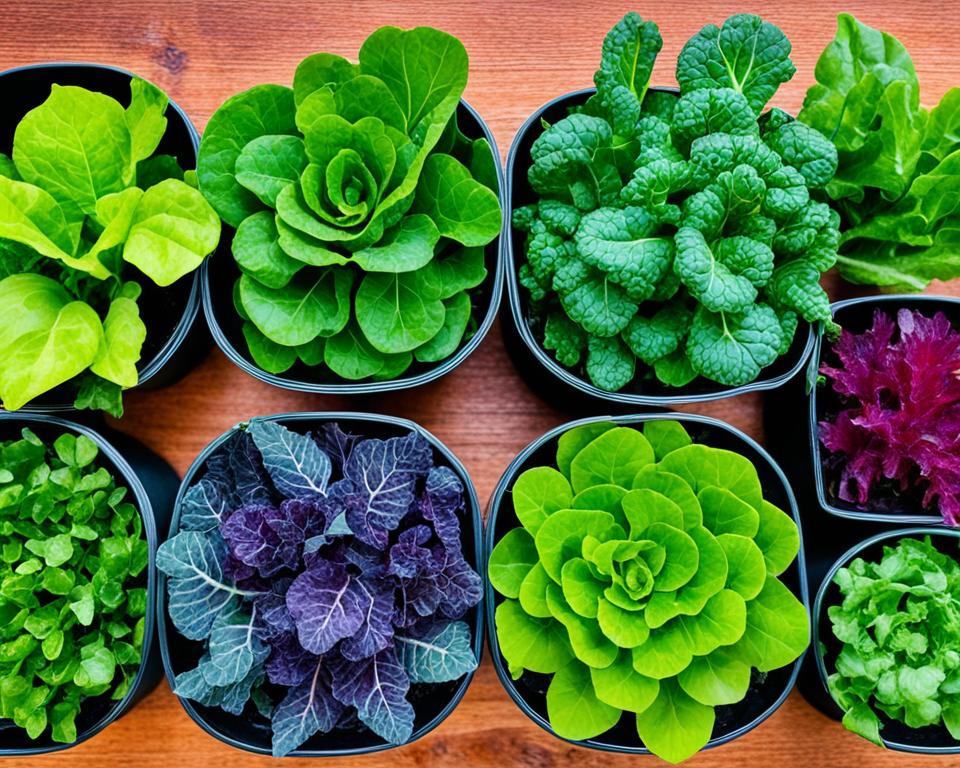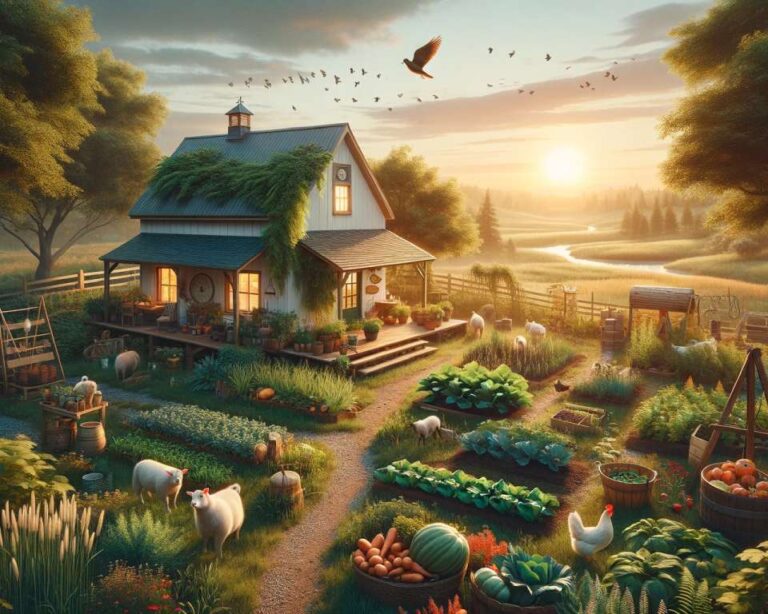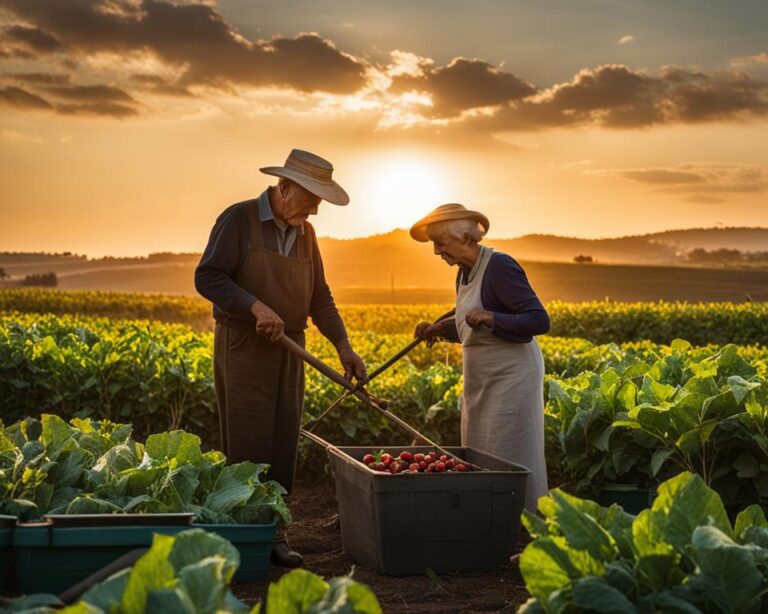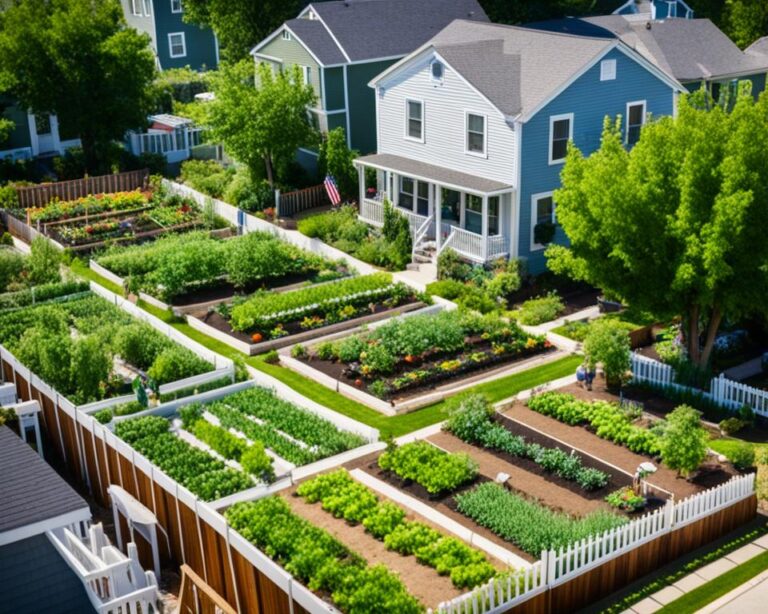Top Easiest Vegetables for Survival Gardening
When facing uncertain times, having a survival garden can provide a reliable source of nutritious food. By growing your own vegetables, you can ensure food security and self-sufficiency. It’s important to choose vegetables that are easy to grow, especially in challenging survival situations. These vegetables should be beginner-friendly, resilient, and able to withstand emergencies. The following list of easiest vegetables for survival gardening will help you get started on your journey to food independence.
Whether you’re a beginner or an experienced gardener, these vegetables are perfect for ensuring a successful survival garden. They require minimal maintenance, making them ideal for those with limited time and resources. Additionally, their resilience allows them to thrive in various environmental conditions, ensuring a consistent food supply for you and your loved ones.
From leafy greens like spinach and kale to versatile herbs like basil and mint, these vegetables are packed with essential nutrients and can be easily incorporated into your daily meals. Their fast growth rate ensures a quick harvest, providing you with a source of fresh produce in a short amount of time.
By including these beginner-friendly and resilient vegetables in your survival garden, you can have peace of mind knowing that you are well-prepared for any unforeseen circumstances. Whether you’re facing a natural disaster or experiencing economic instability, growing your own food is a powerful act of self-sufficiency.
Start your survival garden journey today and enjoy the abundance of these easiest vegetables to grow for survival situations. From planting to harvesting, you’ll experience the satisfaction of growing your own food while ensuring the well-being of yourself and your loved ones.
Importance of a Survival Garden
A survival garden plays a vital role in ensuring food security, especially in challenging situations. When faced with uncertainty, having a reliable source of fresh produce is crucial. By cultivating a survival garden, you can provide your family with a low-maintenance supply of nutritious food that can sustain you even in rough environments.
Growing simple and hardy vegetables is key to achieving self-sufficiency in a survival garden. These vegetables require minimal care and can withstand harsh conditions, making them ideal for survival gardening.
Imagine the peace of mind that comes with knowing you have a self-sustaining food source right outside your door. No matter the situation, you can rely on your survival garden to provide for you and your loved ones. In times of crisis, it’s comforting to know that you have the means to secure your own food supply.
Choosing the Right Vegetables for Survival Gardening
When it comes to survival gardening, selecting the right vegetables is crucial for success. You’ll want to choose varieties that are stress-free and quick-growing, ensuring a consistent food supply in a shorter amount of time. By focusing on these stress-free and quick-growing vegetables, you can simplify the gardening process and achieve better results.
Stress-free vegetables for survival gardening are those that require minimal attention and are more forgiving in terms of growing conditions. They are hardy and resilient, able to thrive even in challenging environments. These vegetables can tolerate fluctuating weather, soil conditions, and pests, making them ideal for survival situations.
Quick-growing survival vegetables, on the other hand, have a short maturity period, allowing you to harvest them sooner. They provide a quicker return on your gardening efforts and ensure a faster food supply. These vegetables are perfect for emergency situations where time is of the essence.
Some stress-free and quick-growing vegetables to consider for your survival garden include:
- Lettuce: A versatile leafy green that grows quickly and can be harvested multiple times for continuous supply.
- Radishes: These root vegetables have a relatively short maturity period and add a refreshing crunch to your meals.
- Green beans: They are known for their rapid growth and can provide a substantial yield in a short period.
- Spinach: Rich in nutrients and easy to grow, spinach is a cold-hardy vegetable that can be harvested throughout the growing season.
- Cucumbers: With the right conditions, cucumbers can grow rapidly, providing you with fresh, hydrating snacks.
When planning your survival garden, consider incorporating these stress-free and quick-growing vegetables to ensure a reliable and abundant food supply. Growing these varieties will simplify the gardening process, save you time and effort, and enhance your chances of thriving in survival situations.
Essential Vegetables for Survival Gardening
In a survival garden, it is crucial to include vegetables that are resilient and quick-growing. These essential vegetables not only provide a stable food supply but also have the ability to withstand emergencies, ensuring the continuity of your survival garden. By incorporating these vegetables into your gardening plans, you can enhance your preparedness and increase your chances of success.
One of the top choices for resilient vegetables is kale. Known for its hardiness and ability to withstand various weather conditions, kale offers a nutritious and versatile addition to your survival garden. Whether you use it for salads, stir-fries, or smoothies, kale will consistently provide you with a valuable source of nutrients.
Another must-have vegetable for survival gardening is the radish. Not only does it have a quick growth cycle, but it is also rich in vitamins and minerals. Radishes can be harvested in as little as three to four weeks, making them an excellent choice for a fast and reliable food source.
If you’re looking for a leafy green that thrives in challenging conditions, Swiss chard is an excellent option. With its colorful stems and dark green leaves, Swiss chard is not only visually appealing but also packed with essential nutrients. It is known for its ability to tolerate both heat and cold, making it a reliable choice for a survival garden.
Additionally, don’t forget to include quick-growing root vegetables like carrots and beets. These vegetables are not only nutritious but also easy to grow. Carrots provide a reliable source of vitamins and can be harvested within a few months. Similarly, beets offer a versatile food option and can be harvested in a relatively short period.
By cultivating these essential vegetables in your survival garden, you can ensure a steady supply of nutritious food in emergencies. Their resilience and quick-growth characteristics make them ideal choices for any survival situation.
Maximizing Yield and Storage
When it comes to survival gardening, maximizing the yield and storage of our crops is crucial. By focusing on stress-free vegetables and low-maintenance crops, we can ensure a bountiful harvest that will provide us with long-term food security in survival situations.
Stress-free vegetables are those that require minimal effort to grow. They are hardy and resilient, able to withstand unpredictable weather conditions and other challenges that may arise. By choosing stress-free vegetables, such as carrots, radishes, and Swiss chard, we can minimize the time and effort required for maintenance, freeing up our resources for other important survival tasks.
In addition to stress-free vegetables, incorporating low-maintenance crops into our survival garden is essential. These crops, like potatoes, winter squash, and beans, are known for their ability to thrive with minimal care. They require less water, fertilizer, and pest control, making them ideal for survival gardening. Furthermore, low-maintenance crops are often suitable for long-term storage, allowing us to preserve our harvest and extend our food supply.
By focusing on stress-free vegetables and low-maintenance crops, we can achieve significant yields from our survival garden while minimizing the time and effort required for upkeep. These crops not only provide us with a reliable source of nutritious food, but they also give us peace of mind and the confidence to face any survival situation that may come our way.







